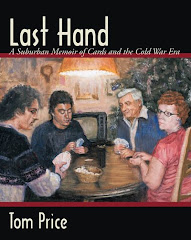During the editing process, I cut out certain sections I’d written for the book because they didn’t seem to move the story forward but could stand alone. Below is one such section. It’s the fascinating story of Willow Creek.
God Moves in Mysterious Ways
While growing up, if we had extra time on our hands or if there was a good film in the theaters, my family headed out to the movies. We were movie junkies. It didn’t matter what genre of film either. The quality of movies could vary during that time from great movies like Jaws or Star Wars, which had lines of anxious movie-goers that would wrap around the theater, to really bad movies like Old Dracula, which might draw five people.
We had several good movie theaters in the northwest suburbs of Chicago. In the mid ‘70s, many of them were showing disaster movies. Woodfield Theater was showing The Towering Inferno and Randhurst was showing Earthquake that had the added gimmick of Sensurround, a special sound system shook the theater during the movie. We’d venture out to the local drive-in theater on occasion but I don’t think my parents liked it very much when we stole glimpses out of the rear window at some adult movie playing on another screen. So we didn’t go to the drive-in too often. Sometimes I wasn’t allowed to see a film because I wasn’t old enough, so Mom would bring me and a friend out to see a kids’ movie.
During early months of 1975, I invited a friend to join me to see Snoopy Come Home, which had been re-released at various theaters in the area. One such theater was Willow Creek Theater in the village of Palatine. Willow Creek was very close by, just one exit south off of Route 53 on Northwest Highway. Our family would go there from time to time when there was a good movie showing. There was nothing unusual about going to Willow Creek to see a movie with a friend except that at the time, unbeknownst to us, there was a controversy brewing between the Palatine community and Willow Creek Theater.
During the early 1970s, movie theaters were a little different than they are today. Many of the theaters were independently run from each other. The screens had a tendency to be bigger than they are today and some theaters only had one screen. If a small theater happened to land a dud, like, say, Doc Savage: The Man of Bronze, it could kill their income and they would struggle to stay in business. To make matters worse, there were a lot of bad movies during the 1970s. To offset that problem, some theaters ran re-releases of popular movies. That’s how I saw movies like The Planet of the Apes and 2001: A Space Odyssey in the theater. These were the days before video or cable and if you wanted to see an uncut, uninterrupted film you had to go to the theater. Another way to get additional revenue, common to that time, was to show adult films late at night. In the early ‘70s that’s what the operators of Willow Creek Theater decided to do to help their struggling business.
Trouble began in January of 1975, when Willow Creek began showing the film The Sex Shop and people in the community complained to the village. The controversy played out over the course of the next three months in the headlines of the local newspaper, The Daily Herald. Willow Creek management argued that it was a matter of survival, while the protestors worried about a bad element coming to Palatine. By March, The Village of Palatine looked into possibly banning theaters from showing X-rated films within its borders. In Mid-March, Willow Creek Theater relented and chose to no longer show adult films. Willow Creek was faced with the problem of staying in business. Then something unexpected happened.
About seven months after vowing never again to show adult films, Willow Creek Theater gained a new tenant for Sunday mornings. The newly formed Willow Creek Community Church began to hold Sunday morning services at the theater. Led by Bill Hybels, the unconventional church grew quickly in popularity, focusing on people who felt they didn’t belong in a traditional church. It grew and grew. Meanwhile, Willow Creek Theater plugged away and every now and then showed a good movie. By 1981, realizing they had outgrown their theater home, Willow Creek Community Church had built a new spacious complex in South Barrington and made the final move in February. This didn’t help the theater. Within three years of the move, Willow Creek Theater was out of business and remodeled into a banquet hall. Willow Creek Community Church, however, thrived and has grown to become one of the biggest churches in the country and the name “Willow Creek” can be heard all around the world.
Of course, I didn’t care much about adult films, or church for that matter, as I stood in line at the concession stand before entering the theater to watch Snoopy Come Home. Mom gave me a little spending money if I went with friends to the movies, so I wanted to make good use of it.
“I’d like a large buttered popcorn and medium coke.”
After getting my popcorn, my friend and I along with Mom entered the almost empty theater to find a seat. I bet Mom was secretly glad they didn’t put in the wrong film.
'70s song of the day: "Joy to the World" by Three Dog Night


